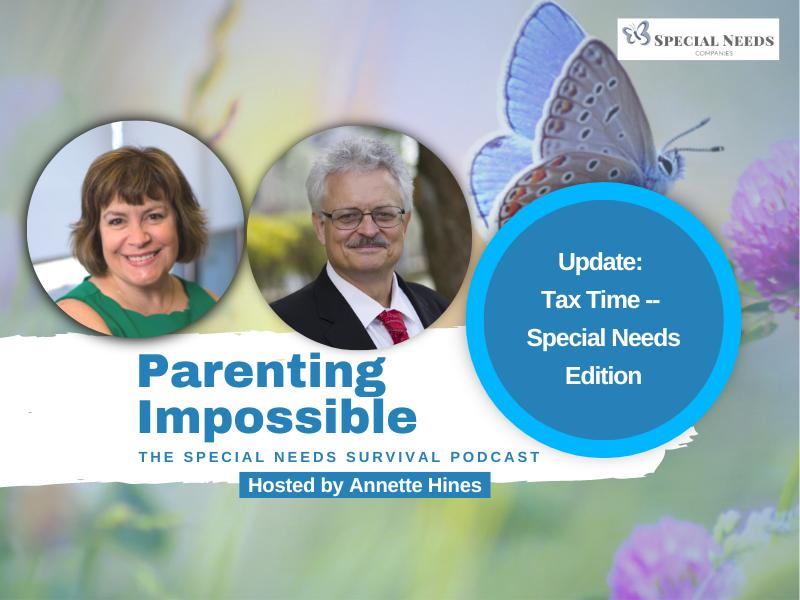It is tax time and we want to revisit a popular episode!
Learn from Host Annette Hines and her favorite guest, law partner, and husband, Mark Worthington about answers to four top questions people ask about special needs tax preparation and tax reporting:
- Can I claim my adult child as a dependent?
- If I charge my adult child room and board when they are living with me, is that taxable income to me? And how does this impact their Supplemental Security Income (SSI)?
- Taxation of special needs trusts and SECURE (Setting Every Community Up for Retirement Enhancement) Act of 2019 updates.
- How are caregiver payments such as Adult Family Care (AFC) and Personal Care Attendant (PCA) taxed to the recipient?
In relation to #3 on taxation of special needs trusts and the SECURE Act, Mark and Annette discuss the proposed regulations that were released in February 2022. The SECURE Act shifted how distributions could be taken from retirement accounts after the account owner dies. If you are considering including a retirement account in a special needs trust for a disabled beneficiary or if you are a trustee managing a trust that has an inherited retirement account, you must be talking with a special needs estate planner like Annette or Mark or a tax advisor. If you or are working with an individual who lives in Massachusetts and need guidance on special needs trusts, you can contact their firm, Special Needs Law Group of Massachusetts, PA on their website: https://specialneeds-law.com/contact/
Since the recording of this episode, Congress signed into law SECURE 2.0 Act in late 2022, and updated how people save money for retirement and withdraw funds from retirement accounts. SECURE 2.0 completely revised the rules for the age at which retirees must take required minimum distributions (RMDs) from their retirement plans. If your trust has an inherited retirement account or if you are the beneficiary of one directly, you will have to pay attention to the new required minimum distribution (RMD) rules.
Finally, an important point that Annette and Mark make is that distribution decisions for a special needs trust to a beneficiary cannot be made based on taxes. Rather these decisions should be made based on what is in the best interest of the beneficiary, how much needs to be saved, the size of the trust, and the form of the distribution.
What types of tax questions do you have? What can Annette or Mark answer for you in future episodes? Leave us a comment or question here: https://specialneedscompanies.com/podcasts

